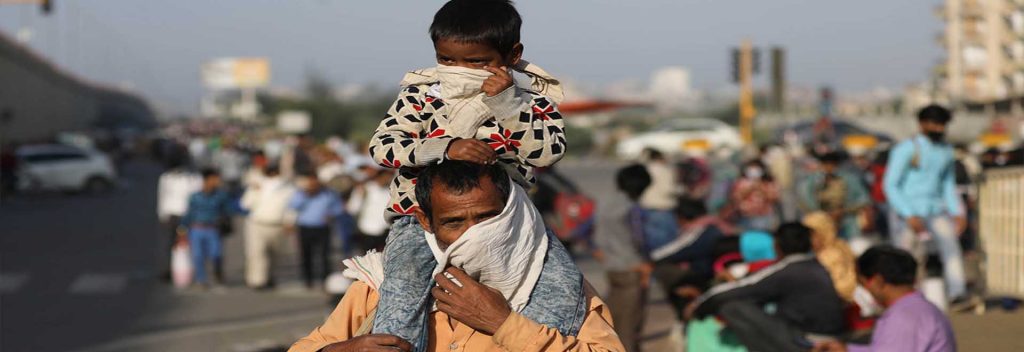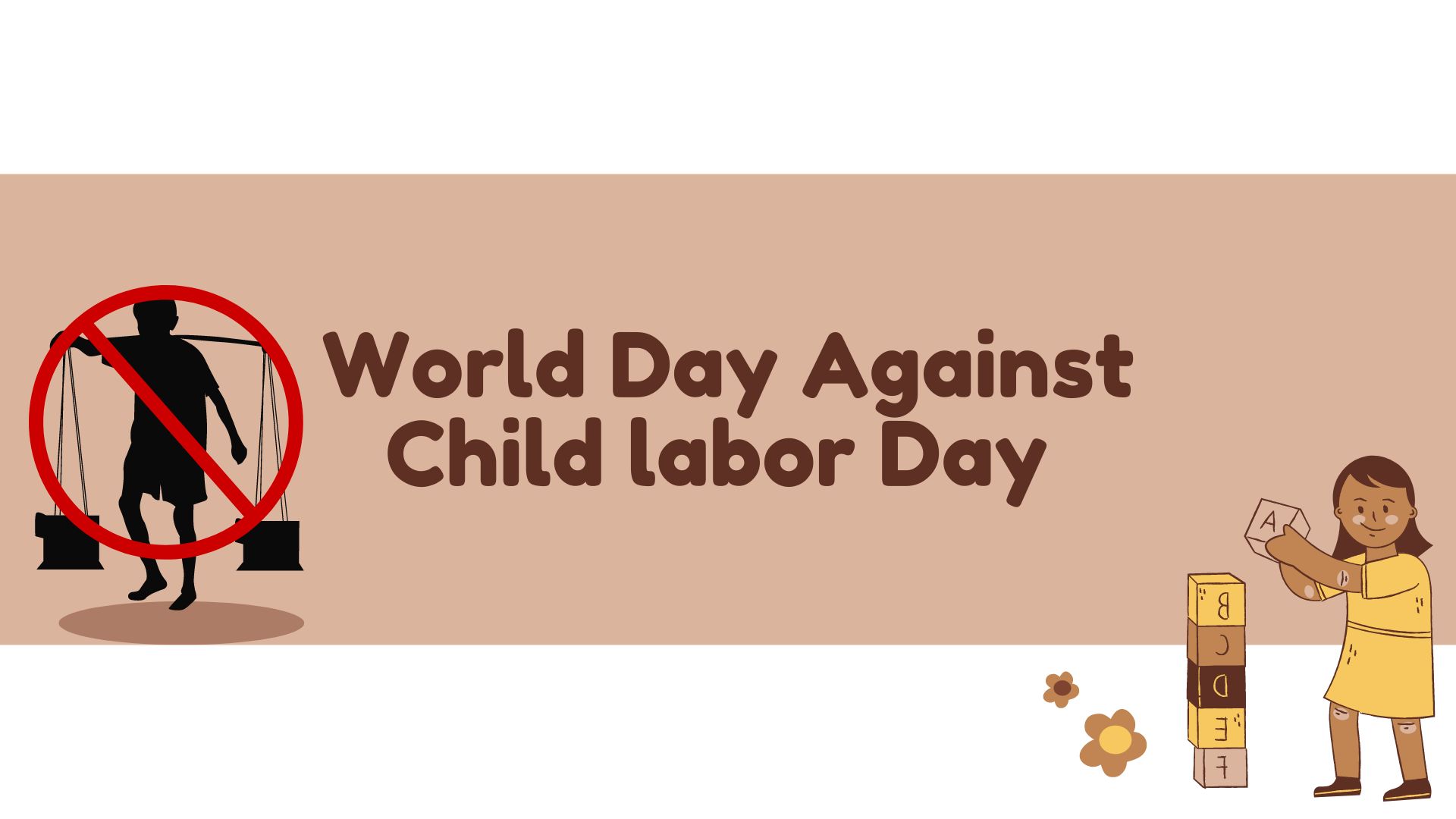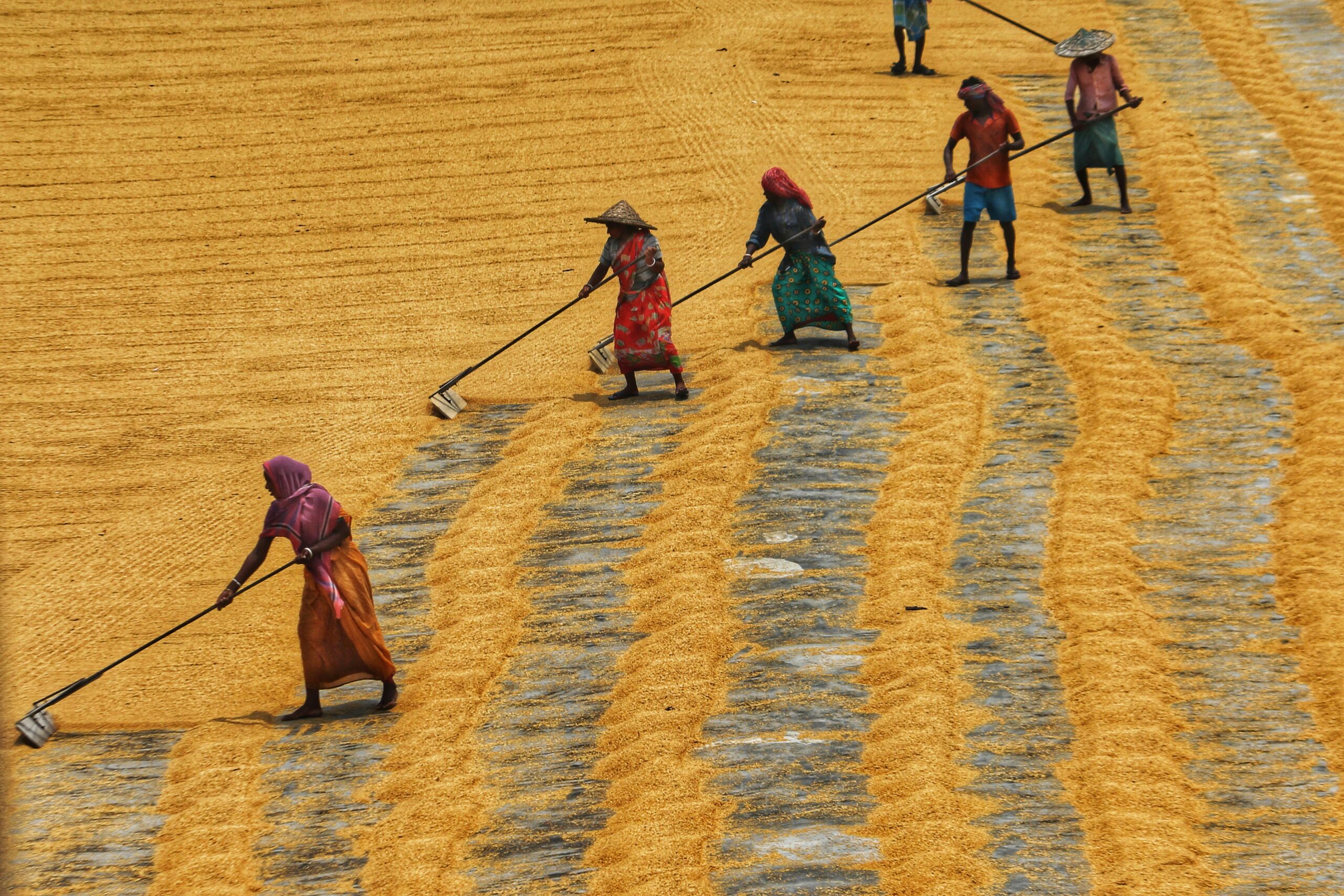Contrary to a recent saying, “Coronavirus impacts everyone equally, doesn’t discriminate between the rich and the poor”, the poor in India – especially the urban poor has been most adversely affected and are battling for survival.
Ever since the lockdown hit on 25th March 2020 in India, millions have lost their jobs—unemployment rate stood at 27.11 % (3 May 2020)i. While the loss of jobs is not unprecedented during such a crisis, as most MSME businesses in India depend on day-to-day operations to generate revenue, the scale of displacement and the sheer number of migrant workers affected (stranded without food and shelter) is unacceptable for one of the largest economies in the world.
The impacts are now obvious and well-documented; thousands of migrant workers were stranded without jobs. Most of these workers originated from the states of Uttar Pradesh, Jharkhand, Odisha, West Bengal, Bihar and Madhya Pradesh. Unable to pay rent for their accommodations and food, they wished to travel back to their home states and villages. Here came the next hurdle—the lockdown had stopped all public transportation. Heart-wrenching reports came in, where migrant families were found walking hundreds of kilometres with all their belongings. Numerous people, both migrant labourers as well as other poor sections of the population were struggling to meet their basic needs of food and shelter.
Since the first week of lockdown, considerable progress had been made in terms of distribution of meals and rehabilitation of stranded workers in designated centres across all 718 districts of India. This had been made possible not only by the government, but businesses of all sizes, communities and even individuals. The district administrations have acted as nodal agencies working on aid and other disease control measures. But given the nature of the crisis and the magnitude of its impact, it has raised fundamental questions about disaster preparedness and social security. The pandemic is an externality; the lessons learned from this experience must be put to good use to battle future crises. Experts across many disciplines believe that pandemics and other disasters will be the new normal
Most of India’s working population, about 90%, are employed informally. ii They work as daily-wage labourers, contractual workers in factories earning on a piece-rate basis, gig workers, etc. Even those employed under wage-employment acts like MNREGA (Mahatma Gandhi Rural Employment Guarantee Act) make enough to sustain on a daily basis—they don’t have enough savings to see through tough times. Unemployment benefits are largely absent. Migrant workers face even more problems as their ration cards are not valid in their location of employment, in spite of the government’s effort to make one ration card for the whole nation – implementation has been a challenge. Lack of digital literacy and general awareness of government schemes has created further obstacles for the workers. Some of the state governments had introduced nominal cash-transfers and other benefits for the stranded workers; many of these required online registrations. Many workers were unable to take advantage of the schemes owing to their inability to access and fill the required forms online.iii
There has been some response to the crisis, primarily focused on alleviating the immediate problems faced by the migrant workers. The authorities as well as the businesses and civil society have sprung into action. Numerous factory owners converted their factory floors, warehouses, etc. into temporary shelters, allowing workers to stay back. Meals are being arranged daily. In the National Capital Region (Delhi and its surrounding areas), many of the government-run schools have been converted into distribution centres for meals not only for migrants but also for other destitute.
Many businesses (for example producing apparel) adapted their processes to produce masks and other PPE, and were thus allowed to run during the lockdown, enabling them to employ workers who would otherwise be unemployed. Many of the leading global commodity brands have stepped up their efforts to mitigate problems in their value chains. The textile and apparel brands, for example, had initially reacted by cancelling orders to protect their balance sheets; but a few of them had also resolved to stand together with their value chain actors. Gradually, most brands have agreed to honour their contracts and release payments.
This has improved prospects for migrant workers, who can now hope to regain employment with the suppliers of these brands. There are also instances of some very hopeful practices wherein companies have always focussed on the welfare of all workforce including skilled migrant workers. These businesses have gone beyond the provision of food and shelter. They have supported their migrant workers (who would usually be paid on a piece-rate basis) with partial payments despite stoppage of work. They have also ensured the emotional well-being of these workers through facilitating constant communication between them and their families. It is a win-win situation as the workers have been shielded against the emergency and at the same time the business has ensured business continuity and skill retention.
Many businesses (for example producing apparel) adapted their processes to produce masks and other PPE, and were thus allowed to run during the lockdown, enabling them to employ workers who would otherwise be unemployed. Many of the leading global commodity brands have stepped up their efforts to mitigate problems in their value chains. The textile and apparel brands, for example, had initially reacted by cancelling orders to protect their balance sheets; but a few of them had also resolved to stand together with their value chain actors. Gradually, most brands have agreed to honour their contracts and release payments.
Apart from the above, a few other areas are critical and needs to be considered. A concerted push towards digital financial inclusion (preceded by digital financial literacy) has become critical. Service provides like banks/financial institutions and technology providers would have to ensure all relevant information is available in local vernacular languages. Migrant workers who don’t have Aadhar Cardiv-linked bank accounts won’t be able to access benefits like cash transfers from the government. Schemes like the Jan Dhan Yojanav must be renewed to make sure no worker is left without a bank account. Also, a national database (Aadhar-linked) must be created for informal workers; a Bill is pending in the parliament regarding the same.vi Even though formalization will take decades, such a database will enable the authorities as well as the civil society to identify and reach to the most vulnerable people in the country. Changes in the Public Distribution System (PDS) are necessary – and the one ration card valid across India should be implemented at the earliest.
The above list of impact and mitigation measures is by no means exhaustive. Numerous initiatives are being run by organizations and individuals across the country. Despite the various efforts to support migrant workers, mass scale reverse migration is inevitable once the lockdown is removed. The uncertainty, lack of information and extreme emotional turmoil will cause the migrant workers to re-evaluate the often-meagre benefits of migration – which will have impact on industry, economy and society at large. Collaboration between the government agencies (state and local level) and businesses is critical to build trust and hope for these workers, if the industry/markets are to come back to their old glory. This will not be achieved overnight and will have to be planned and executed with patience. It can be hoped that all stakeholders would put their minds together and come up with long-lasting solutions to outlast the current pandemic as well as prepare for future disasters.
- i Indian Express/Centre for Monitoring Indian Economy.
- ii National database of workers in informal sector in the works
- iii Centre for Responsible Business. Stakeholder consultations in Panipat, Haryana.
- iv Aadhar is a 12 digit unique identification number issued by the Government of India that serves as proof of identity and address in India
- v Pradhan Mantri Jan Dhan Yojana (PMJDY) was a financial inclusion scheme launched by the Government of India in August 2014 to ensure that every household had at least one basic bank account. This would help them access pensions, benefits transfers, insurance, etc.
“NOTE: The views expressed here are those of the authors and do not necessarily represent or reflect the views of CRB.”













































































































